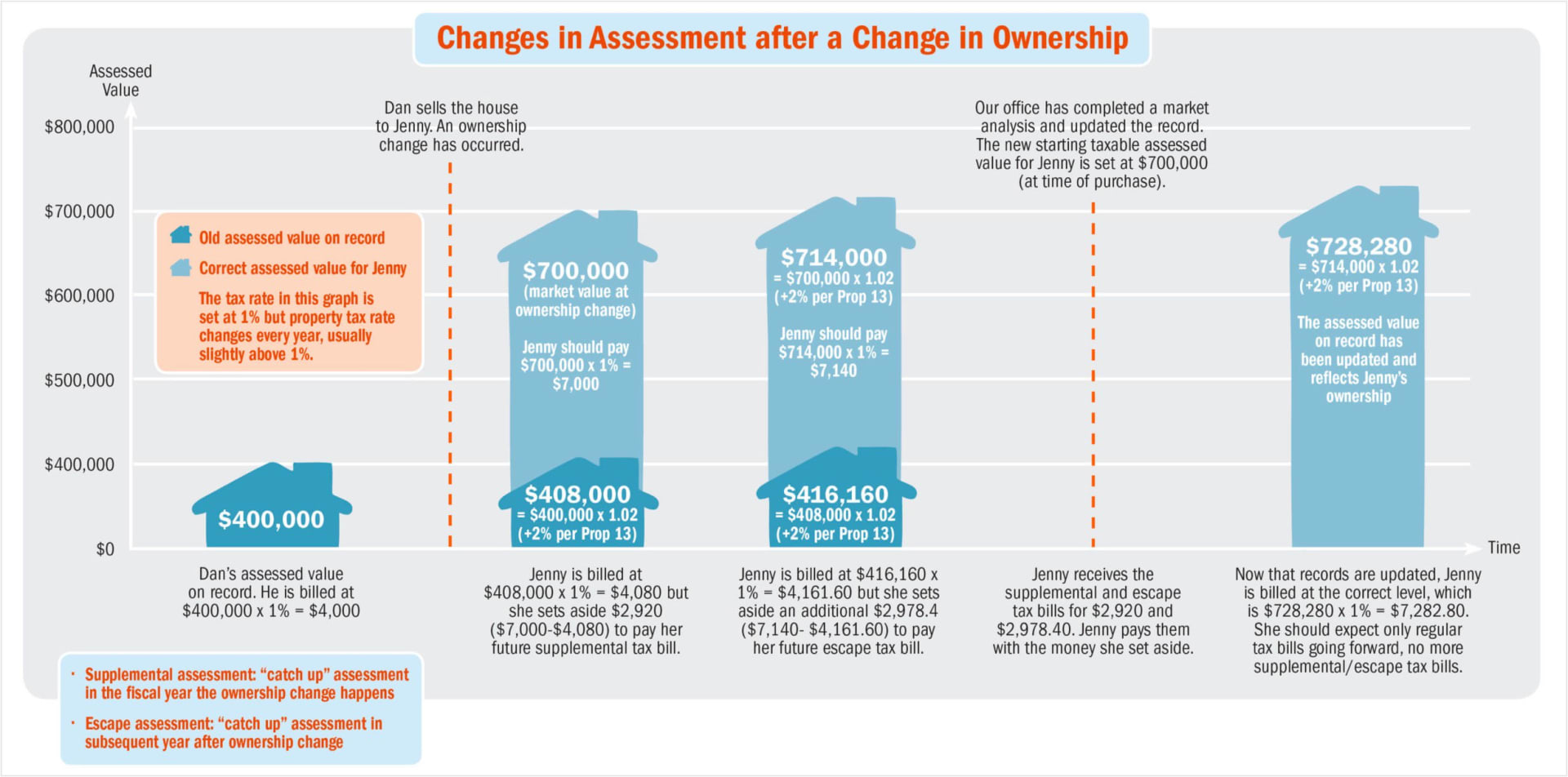
“Death And Taxes:
There Isn’t A Convenient Time For Either Of Them.”
Apart from mortgage payments, homeowner’s insurance, and utility bills, property taxes are a large portion of what you’ll pay for your home yearly and they should be something you plan for as one of your major housing expenses in the Bay Area. Here’s a quick refresher on what’s unique about San Francisco property taxes and what to expect after buying or refinancing a home. I’ll also cover how to appeal a property appraisal if you believe it’s too high.


